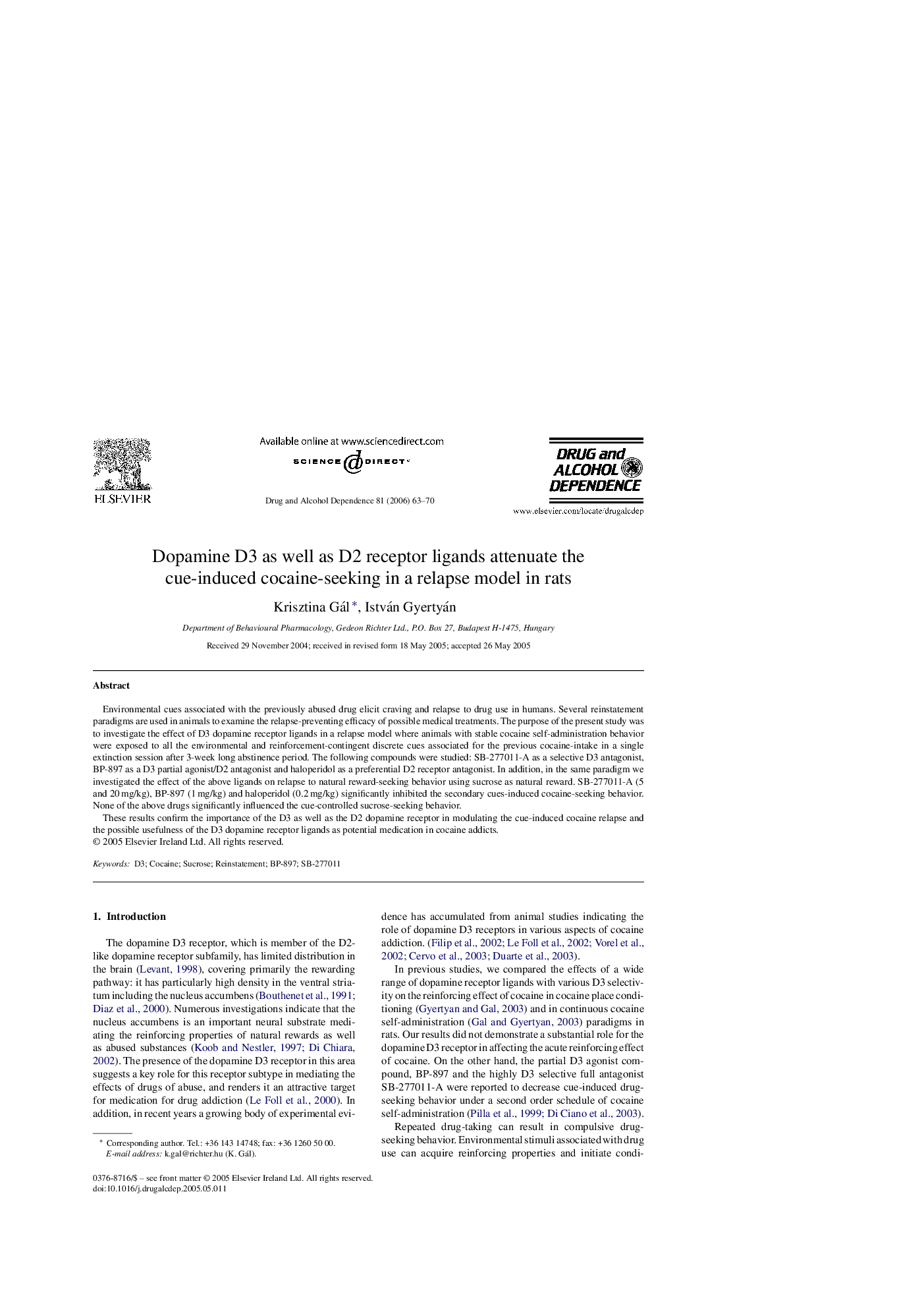| Article ID | Journal | Published Year | Pages | File Type |
|---|---|---|---|---|
| 1071918 | Drug and Alcohol Dependence | 2006 | 8 Pages |
Environmental cues associated with the previously abused drug elicit craving and relapse to drug use in humans. Several reinstatement paradigms are used in animals to examine the relapse-preventing efficacy of possible medical treatments. The purpose of the present study was to investigate the effect of D3 dopamine receptor ligands in a relapse model where animals with stable cocaine self-administration behavior were exposed to all the environmental and reinforcement-contingent discrete cues associated for the previous cocaine-intake in a single extinction session after 3-week long abstinence period. The following compounds were studied: SB-277011-A as a selective D3 antagonist, BP-897 as a D3 partial agonist/D2 antagonist and haloperidol as a preferential D2 receptor antagonist. In addition, in the same paradigm we investigated the effect of the above ligands on relapse to natural reward-seeking behavior using sucrose as natural reward. SB-277011-A (5 and 20 mg/kg), BP-897 (1 mg/kg) and haloperidol (0.2 mg/kg) significantly inhibited the secondary cues-induced cocaine-seeking behavior. None of the above drugs significantly influenced the cue-controlled sucrose-seeking behavior.These results confirm the importance of the D3 as well as the D2 dopamine receptor in modulating the cue-induced cocaine relapse and the possible usefulness of the D3 dopamine receptor ligands as potential medication in cocaine addicts.
